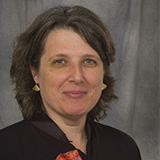
Kate Probst has over two decades of experience evaluating environmental policies and programs. Kate’s most recent work is Superfund at 40: Unfulfilled Expectations. The paper, originally published as a chapter in Looking Back to Move Forward by the NYU School of Law State Energy & Environmental Center, focuses on the enforcement and funding elements of the program. In 2017 and 2018 Kate testified before the House Energy and Commerce Committee and the Senate Environment and Public Works Committee about ways to improve the Superfund program.
.
For almost 20 years, Kate was a senior fellow at the Washington D.C. think tank, Resources for the Future (RFF). At RFF, Kate conducted research on ways to improve the Superfund program and the U.S. Department of Energy’s program to clean up sites in the nuclear weapons complex. She directed projects estimating cleanup costs, evaluating information systems, analyzing alternative liability and financing approaches, and examining the reliability of institutional controls. All of these projects involved interviews with senior government policymakers and key stakeholders, as well as in-depth research. Kate was asked to testify before the U.S. Congress on the results of a number of these studies and was frequently interviewed by members of the press. She worked closely with congressional staff and with representatives of government, industry, and environmental organizations. She is the author of many studies and reports on Superfund, the nuclear weapons complex, hazardous waste programs, and climate change.
.
After leaving RFF, Kate spent two years at Green Seal, Inc., a leading U.S. eco-label, as Vice President of Institutional Greening. In that role, she led the effort to develop a green building operations and maintenance manual for public housing authorities and worked with local governments to help them identify ways to implement environmentally preferable purchasing practices. Since leaving Green Seal, Kate has been an independent consultant. She has written a number of independent papers, most focused on the Superfund program. She is often contacted by members of the trade, regional and national press who are investigating Superfund.
.
Kate has organized and facilitated conferences on a variety of policy issues. She has served on a number of government advisory panels for the U.S. EPA and the U.S. DOE, as well as on a National Academy of Sciences panel on Contaminated Sediments.
.
Kate has a B.A. from Wesleyan University and a Masters Degree in City and Regional Planning from Harvard University.
